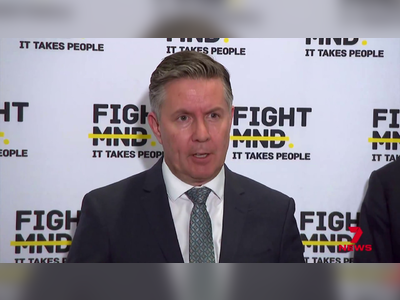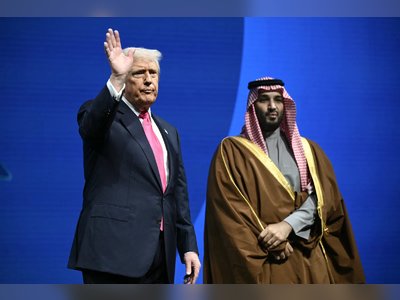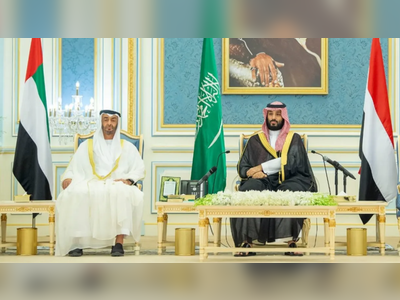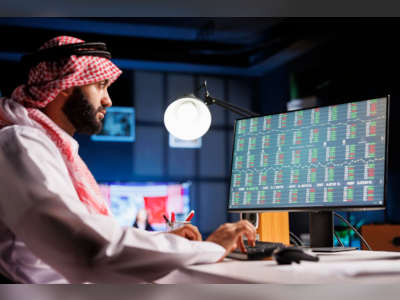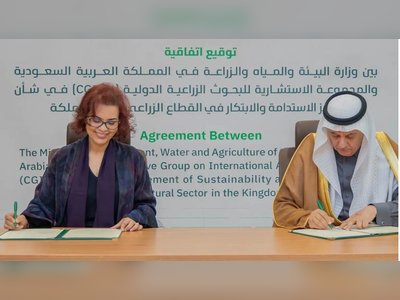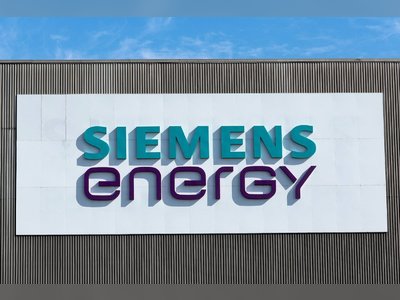
Saudi Arabia's National Semiconductor Hub: Attracting SR1 Billion Investment and Establishing 50 Companies for Chip Design
Saudi Arabia announced the creation of the National Semiconductor Hub to attract over SR1 billion ($266.6 million) in investment for the design of electronic chips, in response to the growing demand for chips in artificial intelligence.
The hub aims to establish 50 companies and bring in 25 international semiconductor experts to provide guidance.
The Kingdom seeks to become a global hub for semiconductors due to its strategic location, as stated by Dr. Naveed Sherwani, CEO of Rapid Silicon, who will head the new hub.
The Alalat company, launched by Saudi Crown Prince Mohammed bin Salman in February 2024, is the national foundation for semiconductor manufacturing in Saudi Arabia.
A two-day forum titled "Empowering Silicon Innovations" was organized by the King Abdulaziz City for Science and Technology (KACST) and the King Abdullah University of Science and Technology (KAUST).
The event was attended by high-level officials, decision-makers, and experts in the semiconductor industry, including Eng.
Abdullah Al-Swaha, Minister of Communications and Information Technology and Chairman of the Board of Directors of KACST, Eng.
Khalid Al-Falih, Minister of Investment, Dr. Abdullah Al-Ghamdi, President of the Saudi Authority for Data and Artificial Intelligence, and Dr. Enas Al-Issa, President of Princess Nourah Bint Abdul Rahman University.
The text is about a forum aimed at establishing an integrated operating environment for semiconductor design companies in Saudi Arabia.
The forum announced several initiatives to enhance the Kingdom's global position in semiconductors, boost the digital economy, and develop local talent.
Dr. Munir Eldesouki, President of KACST, announced the establishment of the National Capability Center for Semiconductors (NCCS), which offers access to advanced clean room laboratories for researchers and experts to conduct specialized research in electronic chip design.
The center aims to create a research network for universities, public, and private sectors.
Dr. Eldesouki announced the establishment of a new center at KACST to advance Saudi Arabia's research, development, and innovation in semiconductor technologies.
The center will offer resources to researchers from 30 Saudi universities, training 500 students and researchers annually.
A new joint master's program with Princess Nourah Bint Abdulrahman University, UCLA, and KACST was also announced, providing high-quality education and practical training in clean room laboratories, resulting in a degree for participants.
Dr. Eldesouki announced the opening of registration for the Ignition semiconductor incubator program, the first of its kind in the region, which aims to qualify male and female researchers in future technology specializations, attract ambitious entrepreneurs, boost start-ups, achieve technical progress, and contribute to economic growth.
Dr. Al-Otaibi revealed the National Semiconductor Hub's plans to train and employ 5,000 engineers for integrated circuit design.
Both programs are part of Saudi Vision 2030's goals.
The National Technology Development Program (NTDP) will provide over SR150 million in support to companies in the Saudi Arabian Semiconductor Industry Cluster.
Dr. Al-Otaibi, the president of KACST, emphasized the Hub's role in boosting local industries, supporting research and innovation, and creating a cutting-edge environment for the semiconductor industry.
Prof. Tony Chan, president of KAUST, highlighted the strategic collaboration between KACST and KAUST and the Kingdom's commitment to developing world-class research and innovation capabilities in semiconductors to achieve Saudi Vision 2030.
Prof. Shuji Nakamura, a Nobel Prize winner in Physics in 2014, spoke at a conference about his invention, VCSEL Laser Technology, which is used in short-distance communication, car sensors, and facial recognition tools in smartphones.
The two-day conference featured eight scientific sessions focusing on the semiconductor industry in the Kingdom.
Topics included the semiconductor landscape, pioneering excellence, strategic initiatives, localization opportunities, space exploration, 6G communications, and semiconductor development and manufacturing in the Kingdom.
The text discusses a forum where participants explored advancements in photonics, quantum technologies, artificial intelligence, and data science in relation to lighting technologies.
They also debated the importance of integrated sensors in the Internet of Things, electronic chips in electric vehicles, and the Kingdom's initiatives to localize and advance the electronic chip industry to establish a global presence, leveraging its human resources, scientific capabilities, economy, and geography.
The event included an exhibition featuring 20 local and international companies.
The text is about an exhibition featuring the latest innovations in semiconductors, accompanied by related research posters in the field.
The Kingdom seeks to become a global hub for semiconductors due to its strategic location, as stated by Dr. Naveed Sherwani, CEO of Rapid Silicon, who will head the new hub.
The Alalat company, launched by Saudi Crown Prince Mohammed bin Salman in February 2024, is the national foundation for semiconductor manufacturing in Saudi Arabia.
A two-day forum titled "Empowering Silicon Innovations" was organized by the King Abdulaziz City for Science and Technology (KACST) and the King Abdullah University of Science and Technology (KAUST).
The event was attended by high-level officials, decision-makers, and experts in the semiconductor industry, including Eng.
Abdullah Al-Swaha, Minister of Communications and Information Technology and Chairman of the Board of Directors of KACST, Eng.
Khalid Al-Falih, Minister of Investment, Dr. Abdullah Al-Ghamdi, President of the Saudi Authority for Data and Artificial Intelligence, and Dr. Enas Al-Issa, President of Princess Nourah Bint Abdul Rahman University.
The text is about a forum aimed at establishing an integrated operating environment for semiconductor design companies in Saudi Arabia.
The forum announced several initiatives to enhance the Kingdom's global position in semiconductors, boost the digital economy, and develop local talent.
Dr. Munir Eldesouki, President of KACST, announced the establishment of the National Capability Center for Semiconductors (NCCS), which offers access to advanced clean room laboratories for researchers and experts to conduct specialized research in electronic chip design.
The center aims to create a research network for universities, public, and private sectors.
Dr. Eldesouki announced the establishment of a new center at KACST to advance Saudi Arabia's research, development, and innovation in semiconductor technologies.
The center will offer resources to researchers from 30 Saudi universities, training 500 students and researchers annually.
A new joint master's program with Princess Nourah Bint Abdulrahman University, UCLA, and KACST was also announced, providing high-quality education and practical training in clean room laboratories, resulting in a degree for participants.
Dr. Eldesouki announced the opening of registration for the Ignition semiconductor incubator program, the first of its kind in the region, which aims to qualify male and female researchers in future technology specializations, attract ambitious entrepreneurs, boost start-ups, achieve technical progress, and contribute to economic growth.
Dr. Al-Otaibi revealed the National Semiconductor Hub's plans to train and employ 5,000 engineers for integrated circuit design.
Both programs are part of Saudi Vision 2030's goals.
The National Technology Development Program (NTDP) will provide over SR150 million in support to companies in the Saudi Arabian Semiconductor Industry Cluster.
Dr. Al-Otaibi, the president of KACST, emphasized the Hub's role in boosting local industries, supporting research and innovation, and creating a cutting-edge environment for the semiconductor industry.
Prof. Tony Chan, president of KAUST, highlighted the strategic collaboration between KACST and KAUST and the Kingdom's commitment to developing world-class research and innovation capabilities in semiconductors to achieve Saudi Vision 2030.
Prof. Shuji Nakamura, a Nobel Prize winner in Physics in 2014, spoke at a conference about his invention, VCSEL Laser Technology, which is used in short-distance communication, car sensors, and facial recognition tools in smartphones.
The two-day conference featured eight scientific sessions focusing on the semiconductor industry in the Kingdom.
Topics included the semiconductor landscape, pioneering excellence, strategic initiatives, localization opportunities, space exploration, 6G communications, and semiconductor development and manufacturing in the Kingdom.
The text discusses a forum where participants explored advancements in photonics, quantum technologies, artificial intelligence, and data science in relation to lighting technologies.
They also debated the importance of integrated sensors in the Internet of Things, electronic chips in electric vehicles, and the Kingdom's initiatives to localize and advance the electronic chip industry to establish a global presence, leveraging its human resources, scientific capabilities, economy, and geography.
The event included an exhibition featuring 20 local and international companies.
The text is about an exhibition featuring the latest innovations in semiconductors, accompanied by related research posters in the field.
Translation:
•
Translated by AI

